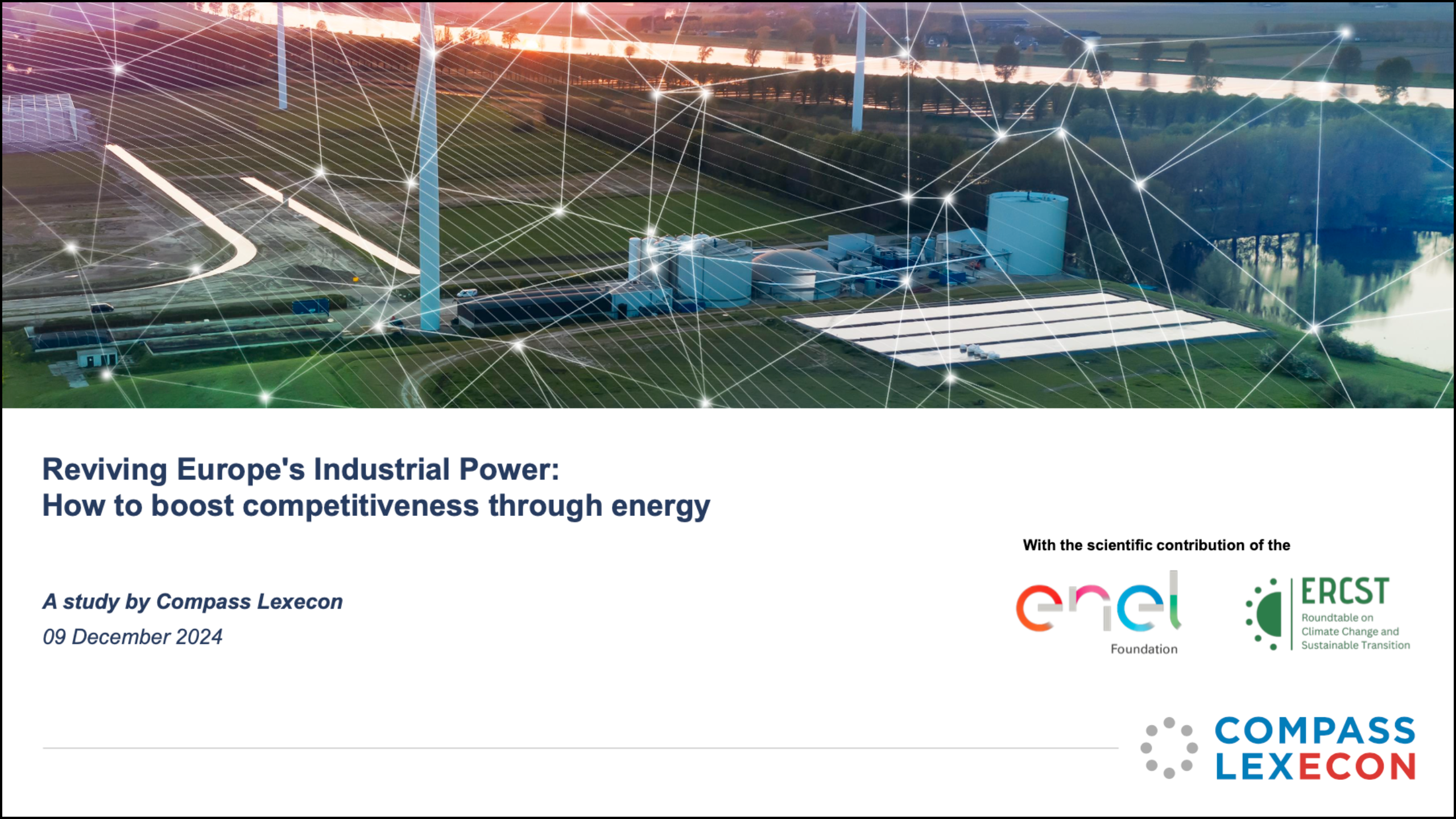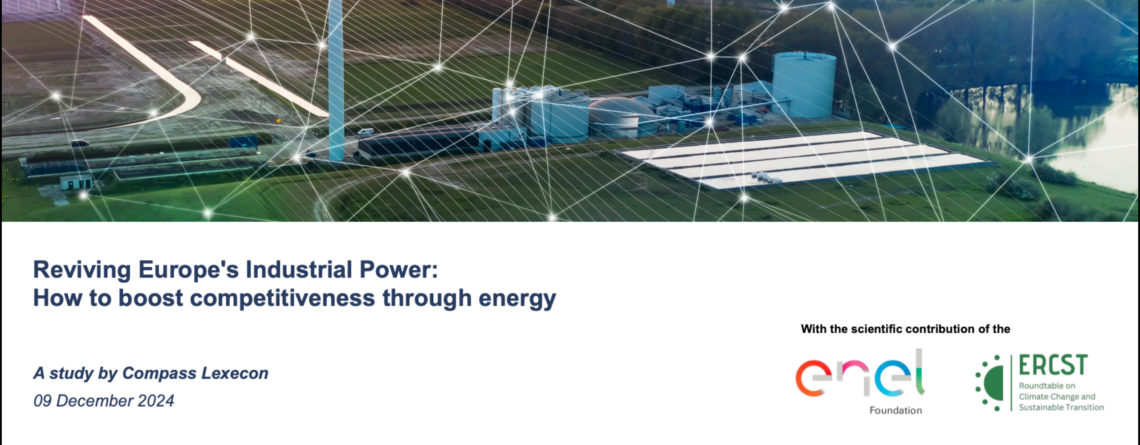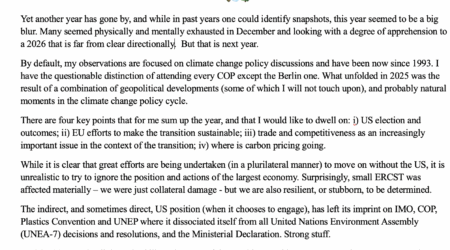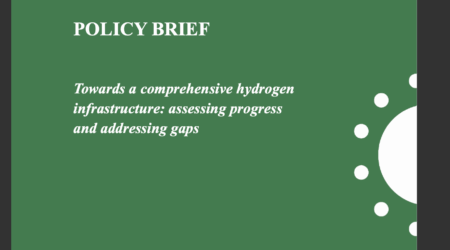Reviving Europe’s Industrial Power: how to boost competitiveness through energy
This is a study sponsored by Enel Foundation, and undertaken by Compass Lexecon and ERCST.
The EU has pledged to cut GHG emissions and achieve Net Zero by 2050, and one of the main challenges is the decarbonization of industrial sectors. In particular, manufacturing industries accounted for 27% of total EU GHG emissions in 2021 and remain reliant on fossil energy sources. Electrification could both reduce emissions and reduce dependence on imported fuels, but manufacturing industries face major hurdles related to competitiveness as energy costs often represent an important part of the total production costs and they are exposed to internal competition.
To feed in this debate, Enel Foundation, in collaboration with Compass Lexecon and European Roundtable on Climate Change and Sustainable Transition (ERCST), has carried out a study aimed at assessing the technical and economic potential of direct and indirect electrification of EU industries and at understanding how to improve competitiveness while achieving decarbonization targets.
The methodology of the study consisted of the following steps: an analysis of the technical and economic potential of direct and indirect electrification; the identification of non-economic barriers for industrial decarbonisation and the support mechanisms for electrification. In addition, adopting an open, innovative and participatory approach, different stakeholders belonging to the key EU industries have been gathered through a series of consultations and in two workshops to provide feedback and participated to bilateral consultations on the main aspects of the research. At last, according to the key findings of the study, a list of policy recommendations has been formulated by Enel Foundation.









